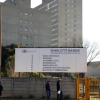-
play_arrow
On The Street On The Air | Kaya 959
A big election year for SA and its peers could inject more volatility in emerging markets
By Ndumiso Hadebe
The global political calendar is set to be a busy one with key emerging markets such as India, Indonesia, the Philippines and Thailand going to the polls, Thailand will hold its first general elections since the coup in 2014. Africa’s biggest economy Nigeria has already gone to the poll with President Muhammed Buhari receiving a fresh mandate as the President of Nigeria. South Africa – Africa’s most industrialised economy with sophisticated financial markets will also be going to the polls on May 8th as pronounced by President Ramaphosa.
A big election year like 2019 often injects some level of volatility in emerging markets. Further, there are a number of risks that potential investors should consider prior to allocating capital to emerging market bonds. Albeit, emerging markets provide new opportunities for investment and offer higher expected growth returns and diversified portfolios to hedge others risks.
A difficult 2018 for SA and its peers
In 2018, we saw emerging markets being overly exposed to capital outflows as a result of underlying weaknesses in the macroeconomic fundamentals of countries such as Argentina and Turkey. This had a pronounced effect on the South Africa Rand in particular as it experienced heightened volatility and depreciation in the short term. The liquid nature of the South African financial markets has often exposed it to exchange rate risks in a downside cycle of emerging market assets. The sanctions pronounced by the US President Donald Trump of key oil producing countries such as Iran and Saudi Arabia led to the rallying of international crude oil prices as fears of constrained supply in the global oil market emerged.
Meanwhile, slower global economic growth led to decreased demand of commodities such as crude oil and copper which are also key indicators in examining the business cycle of the day. The IMF forecasted that the world economy would grow by 3.5 percent in 2019, which is 2 percentage points lower than the 3.3 percent GDP growth rate recorded in 2018.
This low growth economic environment had exacerbated fears from the oil producing nations about an oil glut that would in effect make it inefficient to produce oil competitively. These exogenous factors had a negative effect for South African consumers where they experienced continued petrol price increases to an extent whereby National Treasury is currently engaged in a discussion about alternative methods to the configuration of the pricing of crude so as to shield the consumer from the effects of heightened volatility in the oil and currency markets.
Election promises – strategic issues versus long-term policy

South Africa and Argentina are likely to provide added risks for investors at a time when implied currency swings are at their lowest in a year and banks including Morgan Stanley and HSBC Holdings Plc are urging caution.
In addition to this, the recent slow down of the Chinese economy may result in added pressure on emerging markets because when investors purchase emerging market assets, they in effect, purchase almost 40% of China due to its proportion in the index. Improved Chinese manufacturing data and stimulus measures by the central government have recorded some green shoots. The green shoots are stimulus driven and not all sectors will start to recover more so, as the trade war continues to be a risk for wages and firms in exports related industries.
With just weeks to go before the National General Elections in South Africa, there is already the highest number of registered voters since the 1994 general elections. Women will play an important role in these elections with 2.7 million more registered than men and approximately 26.7 million South Africans registered thus far. This election also sees 48 parties registered and approximately 15.6% of those eligible to vote have registered.
Demography in South Africa and similar to across the continent is a major consideration in this year’s election. Over 60% of SA’s population are people under the age of 35. This segment of the population is most affected by the high unemployment problem in South Africa, stagnant at north of 27% in the strict definition. Some of the structural challenges faced by this segment are the poor education outcomes and a labour market that requires more sophisticated skills set due the structure of the economy. These topical issues will form part of the areas that will be in the hearts and minds of South Africans as they head to the polls.
As a key emerging market, SA has to consider its fiscal challenges that inform its standing in the global financial markets such as a rising debt burden, concerning interest ratio and widening budget deficits compounded by the lack of proper governance and management of SOEs that play a crucial role in driving growth in the SA economy.
Where does that leave commodities?
There is often the perception that emerging markets have a strong correlation with oil prices and yet, their sensitivity to oil prices are relatively uneven across EM countries. China’s slowdown however, does have an effect on the demand for metal-based commodities that are used as an input in the construction and manufacturing industries that drive the Chinese economy. Such a slowdown, does have a negative impact on EM exporters and signals week demand. A country like Nigeria generates diverse asset returns in volatile markets particularly through the rallying of the oil price together with Russia and the Middle East, whereas the same cannot be said about South Africa as it is a net importer of oil. Turkey and India are also amongst some of the nations negatively affected by volatility injected in the oil market and has an impact on their current accounts as well.
In essence, whilst global macro risks are unlikely to recede in 2019 due to the envisaged elections, the yield on offer by EM debt is at its highest level since the 2007-2008 Global Financial Crisis, raising prospects for improved returns relative to last year. In fact, since 1994, hard currency bonds have never posted two consecutive years of negative returns. In effect, we are not where we have never been before.
Written by: Zuko
A difficult 2018 for SA and its peers Election promises – strategic issues versus long-term policy oil prices a
Similar posts
-
MORE ARTICLES

Sibusiso Vilakazi and Kaylin Swart reflect on career highs and lows: KAYA Exclusive

Power supply update at Charlotte Maxeke Hospital

SA celebrates ’30 Years of Freedom’ at New York’s Times Square on the NASDAQ Tower

Do we drive with our egos?

“I am led to pass the baton down to you” – Ayanda Ncwane encourages her son to follow his father’s footsteps
-
QUICK LINKS
UpComing Shows

Feel Good
With Andy Maqondwana
Feel good about feeling good! That's exactly what The Feel-Good show is about. An escape from the negativity that surrounds us, indulging you in good feels. Pass it on to one and all. Spread the good feeling around Gauteng with Andy Maqondwana.
close
Kaya Biz
With Gugulethu Mfuphi
The world of business is simplified for you by Kaya Biz with Gugulethu Mfuphi. This fast-paced award-winning business show talks to the corporate giants as well as up and coming entrepreneurs about their wins and challenges. Gugulethu invites guests to offer their analyses of markets and economies, and also delves into issues of personal financial wellness. Kaya Biz airs Mondays to Thursdays 18h00 to 19h00.
close
Point of View
With Phemelo Motene
Point of View with Phemelo Motene delves into the day’s current affairs, touches on real issues that affect people’s daily lives and shares expert advice on questions posed by the audience. Mondays to Thursdays 20:00 to 22:00.
close
959 Music Weekdays
Kaya 959 Hits
Real. Familiar. Memorable. Kaya 959 brings you the music you know and love from our playlist. Uninterrupted. Thursdays 20h00 to 21h00
close
The Best T in the City
With T Bose
He has held it down in the world of mid-morning radio with the best music, riveting topics, brilliant mixes and interesting guests. Every weekday, The Best T proves why he is the BEST by connecting to you like only your bro or favourite uncle could. He lets his listeners dictate the songs they want to hear in the ever-popular Top 10 at 10, and his Three Teaspoons never run out. Catch The Best T in the City Mondays to Fridays from 09h00 to 12h00.
closeConnect with Kaya 959
DownLoad Our Mobile App
© 2024 Kaya 959 | On The Street On The Air











